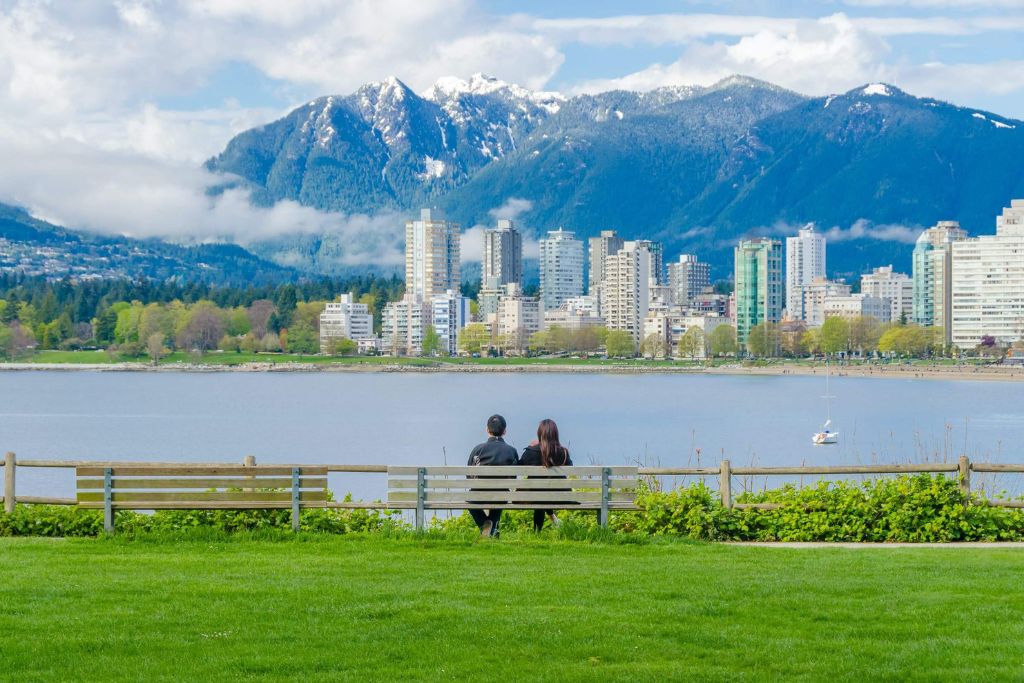There are only a few places on the planet that are truly year-round destinations. One of them is Vancouver. Each season offers a new viewpoint on this bustling, international city. There’s always an adventure, whether visiting a museum in the fall or trekking a mountain peak in the spring. Check out our seasonal guide if you’re wondering about the best time to visit Vancouver.
The Weather in Vancouver
Weather in Vancouver from January to March
The usual high temperature is 5°C to 6°C, and with 140mm of rain expected in January, bring your weather gear, including waterproof boots. January is often dark and cloudy, with fewer days of sunshine than any other month except December, and daylight is scarce, with sunrise around 8 a.m. and sunset as early as 4:25 p.m. at the start of the month. Bring warm clothing, particularly a thick jacket and gloves, in addition to rain protection.
Temperatures begin to rise in February, with the average high rising two degrees to 8°C, although there is more precipitation this month than in January, with 150mm falling over 16 days. Although the weather is likely to be cool, damp, and dismal for much of the year, it is rather mild in comparison to the rest of the country, and it does bring some sunshine on occasion.
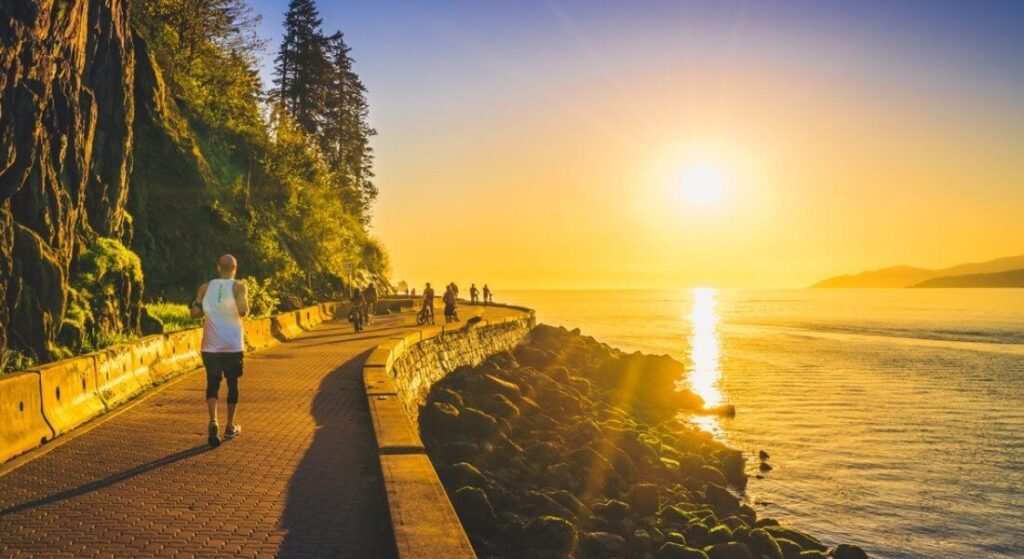
March offers spring blooms and warmer weather, with afternoon highs of about 10°C. This month, you should still bring warm, waterproof clothing and rain gear, but you should also include some short-sleeved shirts and lighter apparel for warmer days when the sun shines. (The average maximum temperature is 10°C. Precipitation: 110mm on average.)
Weather in Vancouver from April to June
Although April continues to be rainy, it is still pleasant, with high temperatures averaging 12°C. The spring flowers are now in full bloom, and you’ll see more people outside, hiking, riding, and rollerblading in places like Stanley Park. The city now gets an average of 8 hours of sunlight per day, yet the weather in April is unpredictable, ranging from chilly, rainy, and dismal to delightful, sunny spring days. This is the best time to visit Vancouver.
With summer quickly approaching, May may be one of the most enjoyable months in Vancouver. The days are getting longer, the weather is getting warmer, and the sun is shining more frequently. While it still rains, there is a notable decline in precipitation this month, with 60mm on average. Afternoon highs of 16°C, and sometimes warmer, indicate that an increasing number of people are taking advantage of the opportunity to enjoy the great outdoors.
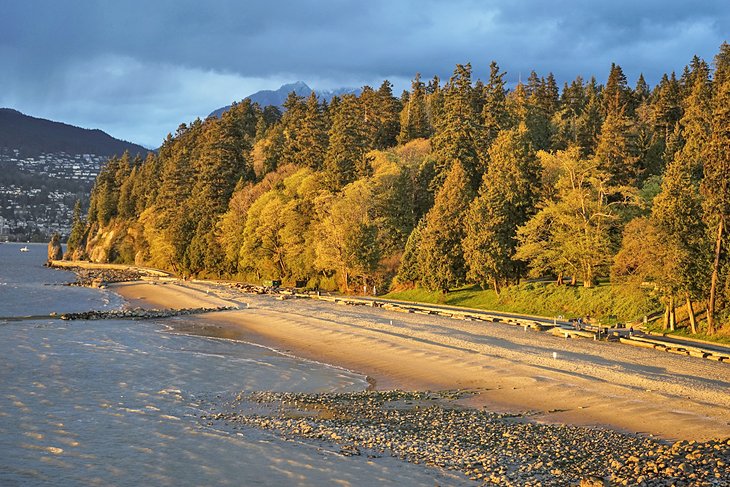
June is similar to May, except peak temperatures jump to 19°C on average. This month might be hot and sunny some years, but it can also be cooler and rainier than May. Summer in Vancouver may or may not be like what you’re used to, as it’s unusually warm.
Weather in Vancouver from July to September
July, like August, is usually the driest month of the year in the city. It has the fewest wet days and the maximum sunny hours and is reasonably comfortable with only mild humidity. You’ll still need some long-sleeved shirts and a light jacket if you plan to spend an evening near the sea.
August is similar to July in that it is often very dry, and you may not see any rain until later in the month, with 50mm of precipitation falling on average. Afternoon temperatures rise a degree to a very pleasant 22°C, with plenty of warm, sunny days.
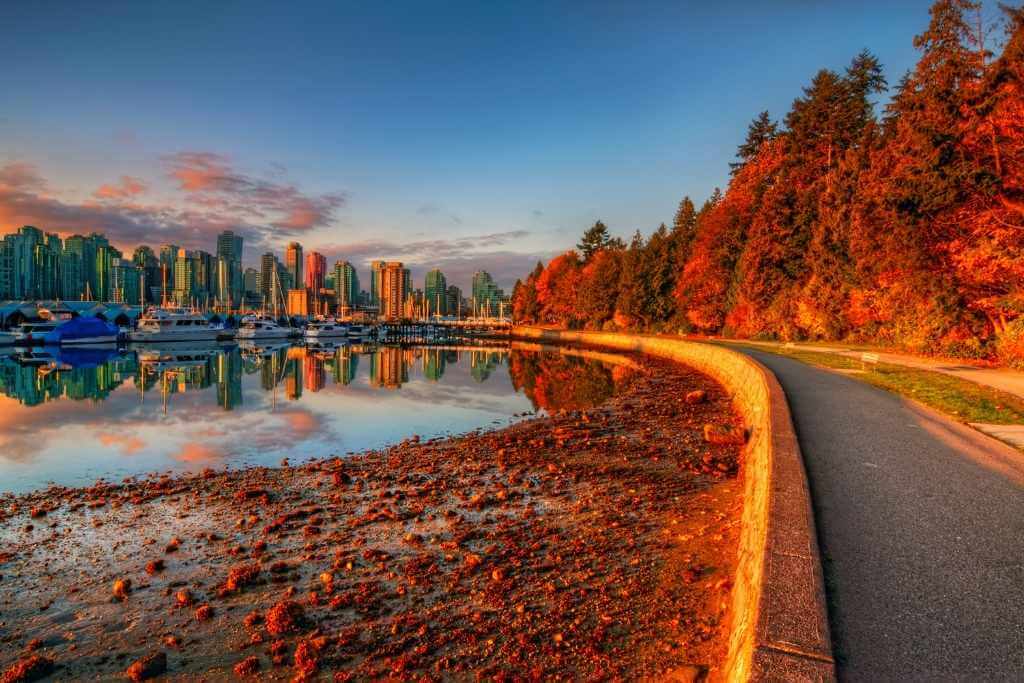
September is another excellent month to visit Vancouver. More often than not, you’ll get many consecutive days of warm, sunny sky, though it will start to feel cooler as the month passes. High temperatures average 18°C, and while precipitation totals 70mm over 10 days, much of it falls later in the month. By arriving during the first half of September, you’ll have the best of all worlds, with many tourists leaving and plenty of gorgeous sunny days.
Weather in Vancouver from October to December
With autumn in full swing, temperatures are notably cooler and wetter, while it can be warm and clear early in the month, just like in September. The later in the month you plan to visit, the more you should expect dreary, dark skies and rain, with an average of 100mm falling in October.
In November, the damp, cold, and dark season has arrived. November is often a particularly wet month, even by Vancouver’s already soggy norms. There is an average of 200mm of precipitation and only four hours of sunlight each day, resulting in many dreary, dismal days.
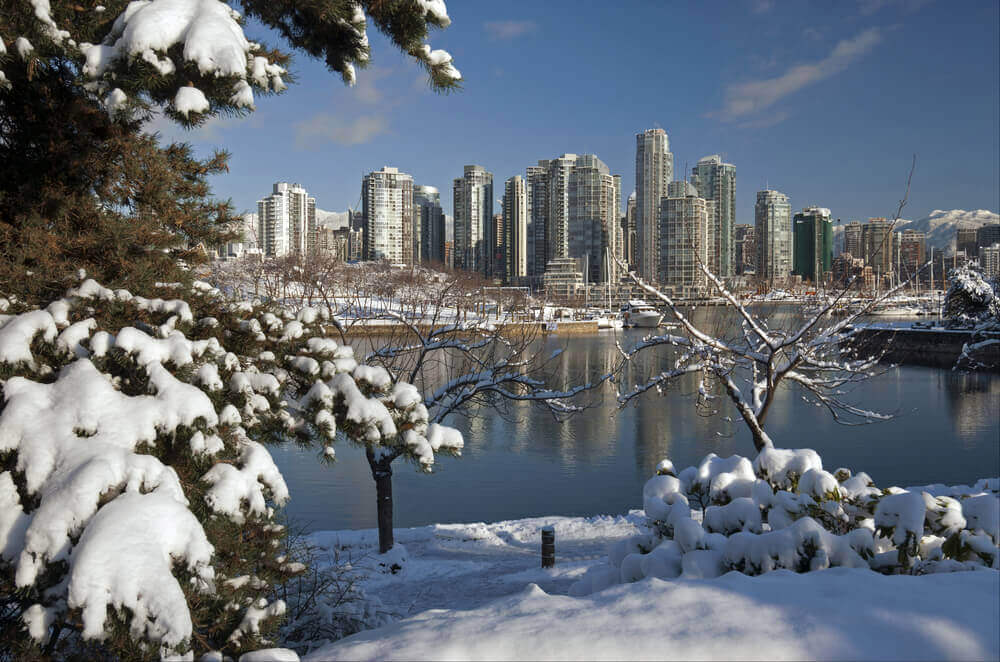
December is still dark and dismal, with almost as much rain as the previous month (160mm on average). In mid-December, the days are considerably shorter, with sunset at around 4:15 pm. However, there will almost certainly be snow in the mountains and plenty of brilliant holiday lights in the city to brighten things up. While snow is unlikely in the city, with overnight lows of 1°C, be prepared for cold rain by taking warm, waterproof clothes and rain gear.
Related post Top 10 Day Trips From Vancouver Help You Escape From The City
When is the best time to visit Vancouver?
The best months to visit Vancouver are March to May and September to November, when the weather is moderate, and hotel accommodations are inexpensive. Summer is the most popular season due to the promise of warmer weather; however, if you plan a trip during this period, make sure to book your hotel room at least two or three weeks in advance. If you enjoy winter sports, don’t let the freezing conditions dissuade you: this city is an excellent home base for skiers and snowboarders eager to test the powder at Grouse Mountain or neighboring Whistler. Layers are essential for staying comfortable no matter when you come.
Things To Do in Vancouver By Season
Spring (March-May): The best time to visit Vancouver
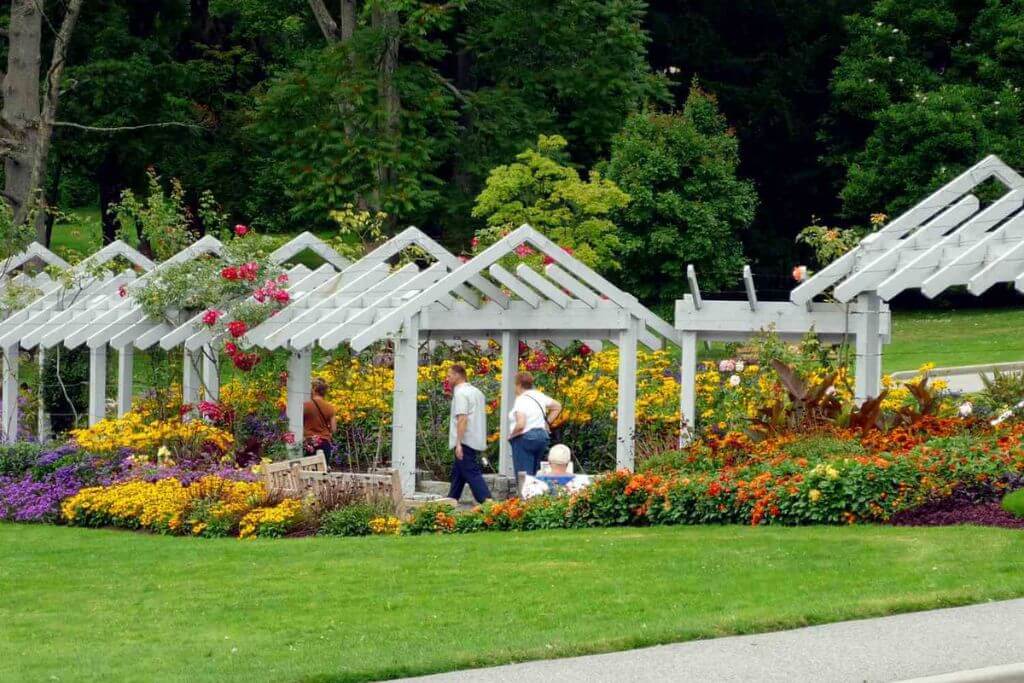
Spring arrives early in Vancouver, making this one of the greatest seasons to visit. The city begins to bloom as temperatures increase (averaging in the 50s and 60s). Residents enjoy kayaking in English Bay, strolling through the flower gardens in Stanley Park, and participating in the many special events offered throughout the town. Furthermore, thousands of whales migrate through Vancouver’s seas from March to October, making this one of the best times and places to see migratory whales. This is also the time to get a good deal on hotel rooms before the summer crowds arrive.
Summer (June-August): The best time to visit Vancouver for outdoor activities
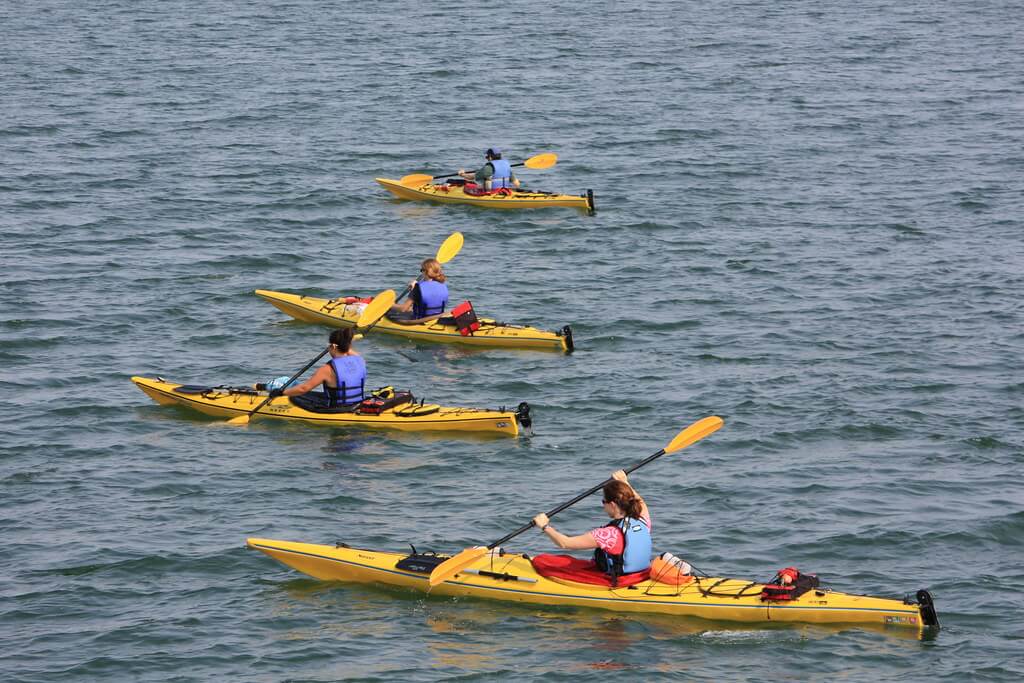
Summer is peak season, with visitors from all over North America flocking to the city to enjoy thrilling outdoor activities and several special events. Despite average temperatures in the low 70s, Vancouverites don their swimsuits and head to Kitsilano Beach near English Bay. The only significant disadvantage to a summer visit is the high cost of lodging. Hotels tend to raise their rates to meet the increased number of tourists and cruisers (Vancouver is a busy cruise terminal). Book a few weeks in advance to ensure availability and reasonable pricing.
Post for you 10 Top-Rated Beaches in Vancouver, Canada
Autumn (September-November): The best time to visit Vancouver for whale watching
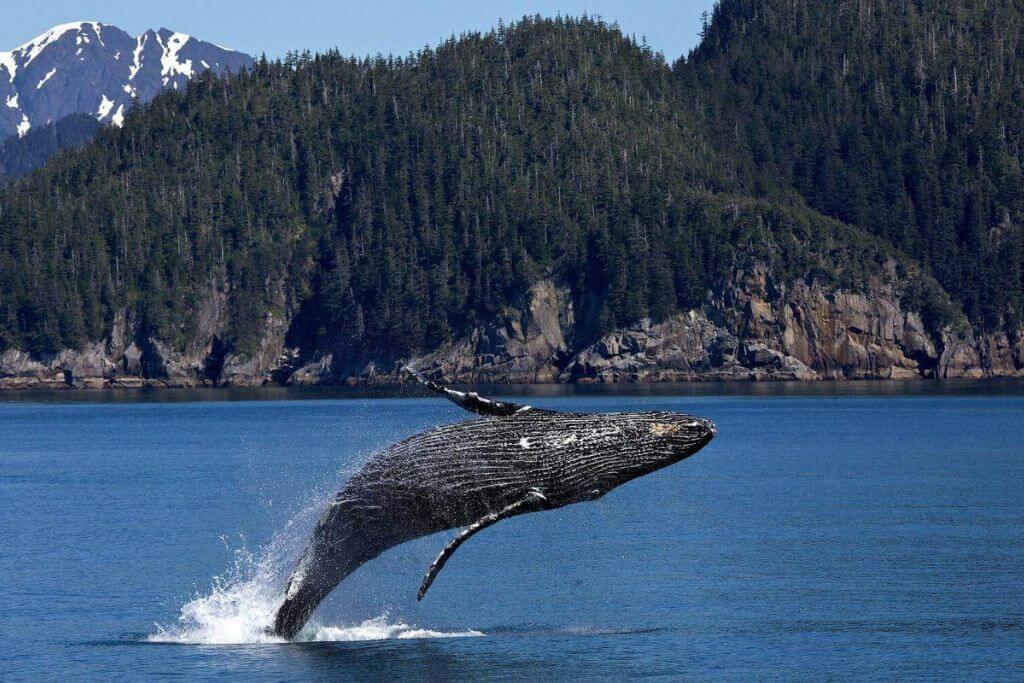
Autumn is a beautiful time to visit Vancouver. Although the majority of summer visitors have returned home, and temperatures have dropped into the 60s and 50s (sometimes into the 40s), the city has yet to hibernate. Vancouverites continue to visit Stanley Park’s walking routes, now strewn with red and orange leaves, and Kitsilano and Point Grey beaches. Hotel rates typically begin to fall around this time, which is a big plus for bargain shoppers.
Whale watching is a popular activity in Vancouver and the surrounding area. The greatest time to watch humpback whales is between late August and early December.
Read more 8 Magical Places To Watch The Leaves Turn Color This Fall In Vancouver
Winter (December-February): The best time to visit Vancouver for winter sports
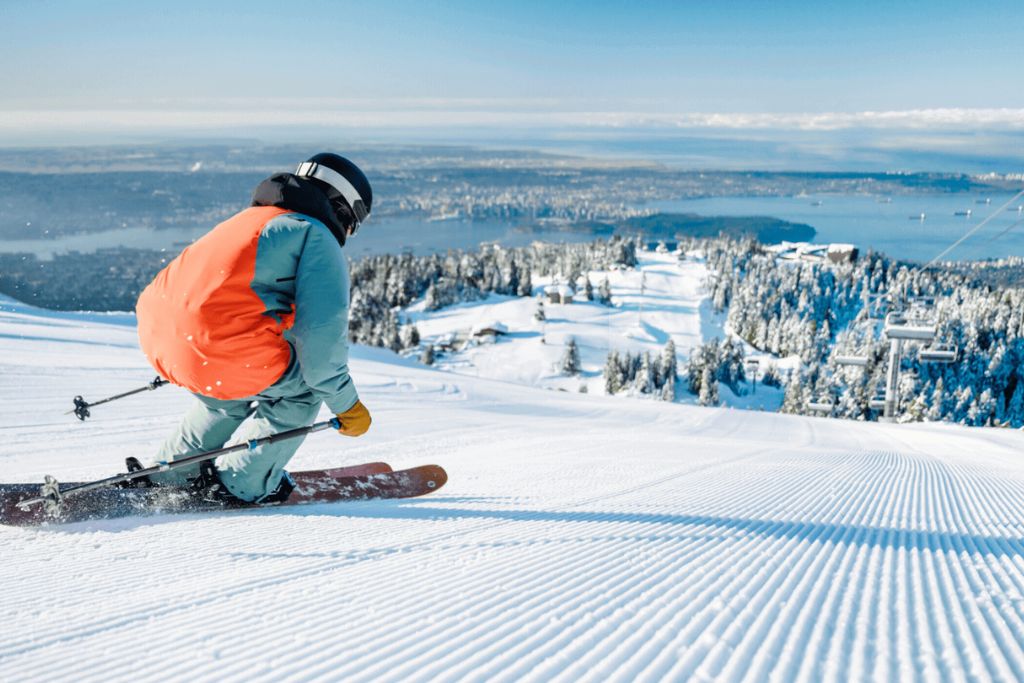
If winter sports are your primary motivator, Vancouver is an excellent home base. Thousands of powderhounds go to the neighboring slopes when the temperature cools. However, if you want to visit the city, this is definitely not the greatest time. Although hotel prices are lowest in the winter, temperatures in the 30s and 40s, as well as regular rain showers, might ruin your vacation.
Here’s all you need to know about the weather and the best time to visit Vancouver. Come here immediately to begin your fantastic journey! Please share your thoughts by posting a comment below!
Don’t miss the winter in Vancouver 10 Coolest Things To Do in Vancouver in Winter Will Brighten Up Your Season
